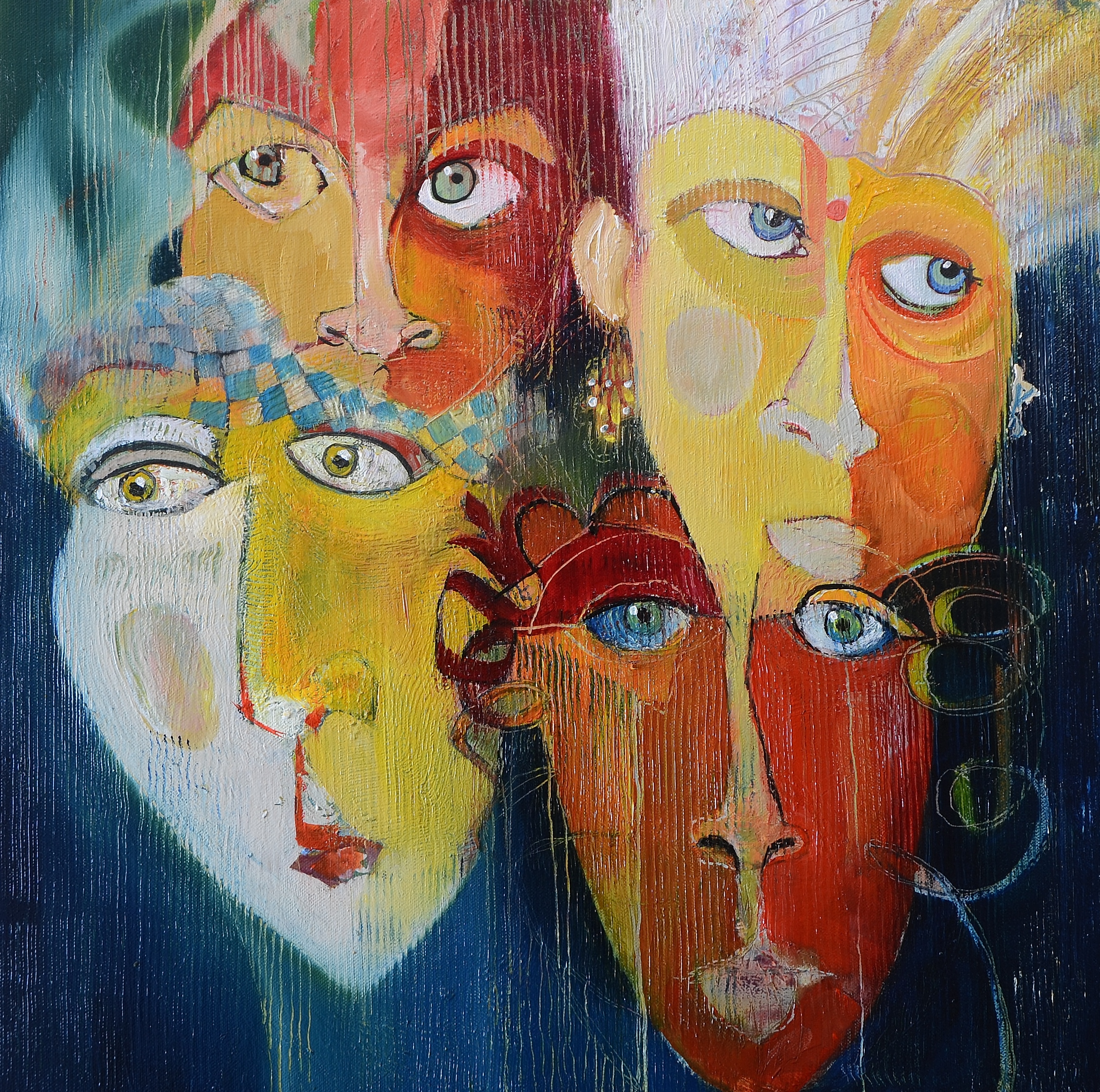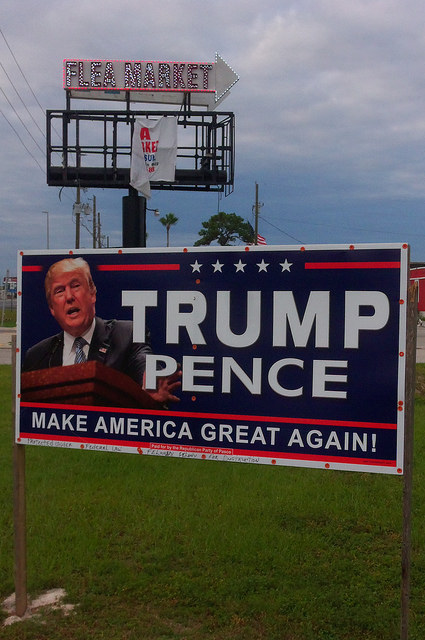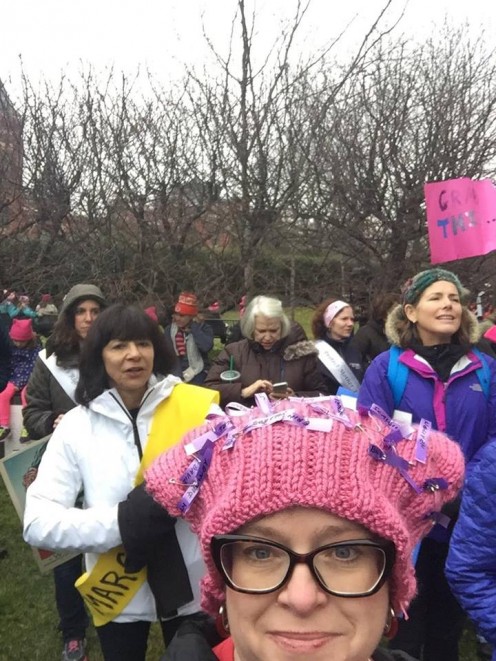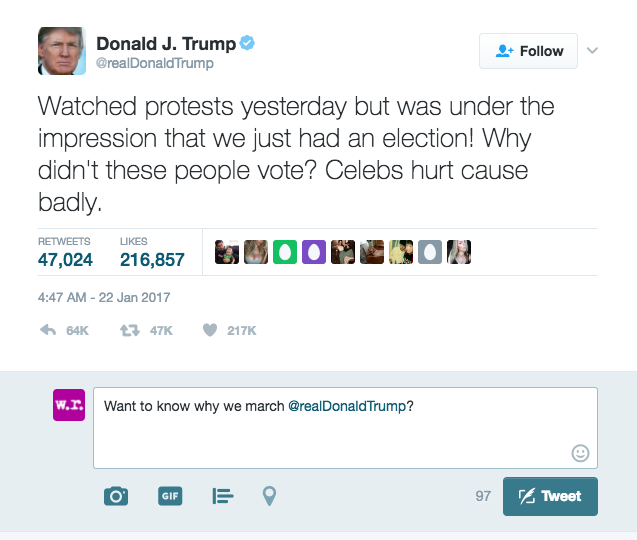Why we march
By Rachel Federman
We march because we want to send a message to refugees, to Muslims, to members of the LGBTQ and African American communities, to recent immigrants and to all women, but especially young girls. The message is this: We stand with them and we will fight alongside them.
Because we believe in science.
Because we believe in public education.
Because we want to leave an inhabitable planet for our children.
Because we will not go back on marriage equality.
Because we have not given up on democracy.
Because we will not allow you to sell our national parks to make condos and drill for oil.
Because Black Lives Matter. Period.
Because we believe in freedom of speech and the First Amendment and will not tolerate a president—or anybody—attacking those basic American rights.
Because we will not stand idly by while you take away health care from millions of Americans.
Because we know we as a society have not yet made good on the promise contained in Reverend Martin Luther King Jr.’s dream.
Because we still have that dream.
Because we have a right to peaceful assembly.
Because we know diversity makes us stronger.
Because we know all of us, except our Native American sisters and brothers, are immigrants. Some came here by choice and others were forced against their will, and we will not forget that history.
Because we will fight your pipelines that contaminate water, destroy sacred property, and continue the reliance on fossil fuels that scientists agree is heating up the earth.
Because Russia is not our ally and the clear Russian interference in our electoral process is—at the very least—a threat to all that we hold dear.
Because even the youngest among us knows it is wrong to mock people’s disabilities and even the youngest among us knows that if you see someone doing it, you stand up and tell them it is wrong.
Because we are not afraid of bullies.
Because the “alt-right” is not adequate to describe a global White Supremacist, White Nationalist movement and we will not be complicit with its normalization.
BECAUSE YOU HAVE TO ASK US WHY WE ARE MARCHING.
Because the problem is not voter fraud, but voter suppression.
Because we are on to your gerrymandering ways.
Because we will not go about our daily lives like this fascist kleptocracy is normal.
Because this is #NotNormal.
Because you were endorsed by the KKK and Neo-Nazis cheered when you won.
Because we are patriots who love our country.
Because you are the manifestation of everything we are teaching our children not to be. You are mean. You are petty. You are a bully. You’re greedy. You lie. If we did not stand up and let ourselves be counted, as strongly opposed to everything you are and everything you represent, we would be failing at our most basic task as caretakers.
Because we are stronger than you and we want to give you a little heads up.
Because we will #Resist your fascist agenda as long as we have breath in our bodies.
Because, whether we are Muslims, Christians, Jews, Buddhists, Hindus or members of any other faith, or members of what you might call the faithless, we believe in the commandment to “Love your neighbor as yourself.”
Because we believe the Bible when it tells us, “He that hath two coats, let him impart to him that has none” and “Do not neglect to do good and share what you have” and “It is more blessed to give than it is to receive.”
Because we are not content with despair and don’t have time to waste engaging in any more battles about whether we had the right candidate (we did).
Because we do not agree on all issues, but we know that the right to life extends to a child with cancer to receive the treatment he or she needs to have the best chance at life. The right to life extends to toddlers whose parents leave loaded guns within reach. The right to life extends to the people of Flint, Michigan to have access to clean water. The right to life extends to people across the globe who risk malaria due to rising temperatures, while you threaten to defect from the Paris Climate Agreement.
Because we know it is a moral stain on our collective conscience that 40 million Americans live in food insecure households while the top 1% control more wealth than the bottom 95% and yet you propose to cut taxes again for that top 1%.
Because we know Obama was right in Grant Park on November 4, 2008 when he said, “Change has come to America,” and just because the white, male Aristocracy did not accept that change doesn’t mean it’s not happening.
Because. It. Is. Happening.
Because you just pissed off the wrong 3.52 billion nasty women. And the billions of non-Women who have our backs, and won’t grab us by the anything.
I’m a writer-mom and social justice advocate trying to live a simple, mindful life and mindful of how often I fail. I used to play in a band called Dimestore Scenario and now I write books like Writer’s Boot Camp: 30-day crash course to total writing fitness (HarperCollinsUK, 2017) and I work with nonprofits mainly in the field of minority education. I have a Master of Arts in English from Fordham University and blog about my efforts to live a country life in the city at Last American Childhood.




